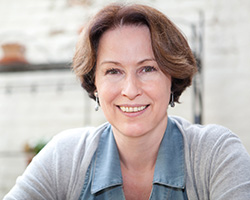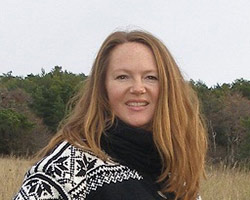By Claudia Ritter and Sunniva Heggertveit-Aoudia
Do you remember the 2006 G8 Summit meeting where U.S. President George Bush’s massaged German Chancellor Angela Merkel? Bush’s move created an awkward moment of discomfort. And it illustrated that most international incidents related to cultural differences fall into the realms of embarrassment, puzzlement, or amusement–with some nevertheless leaving a wake of conflicts, being at best quite controversial and at worst possible deal breakers.
We like building diverse, successful businesses. There are many good reasons why a company should be diverse and inclusive; plainly speaking, it affects the bottom line (positively of course).
Simply said:
- A diverse employee group represents and therefore understands the external world; in other words, a company produces the products the customers want and need.
- A diverse environment where people feel included, whether they are gay, have an impairment, green hair or generally have different ideas/background than the others means productive, engaged staff that are loyal and give their best at work.
Many companies get this and work towards it. But what about people in general? Outside work? Do we get it? Do we understand the benefits of diversity, or differences, in our society?
National cultures, corporate cultures, educational cultures, religious cultures, and socioeconomic levels (the list could be longer) have certain codes and expectations around how we should live our lives. And on top of that, we believe/we seem to notice/it strikes us that many feel a need to “make same;” people should be the same, because it is something we can understand and connect with, and it feels safe. When people do something out of the box, we may feel confused, puzzled or even slightly envious.
For example, at a certain socioeconomic level in a certain country it is common to take several degrees at university. When someone in that circle takes only one degree and feels good about that. The others don’t understand it, “you should take two, at least” and they feel that this particular person makes a bad decision. And then others may feel slightly envious, because they would have wanted to do the same. Of course they will not say so; they will criticize the person with “only” one degree.
It makes us think: what if everyone wanted to (and could) be scientists? Who would pick up the garbage then? Or if everyone wanted to work at the supermarket, who would invent IPhones or the internet? Our diversity of interests, skills, competences, talents, the choices we make, and our opinions are what make the world go round. Do we appreciate that?
“Brussels fascinates by its genuine diversity. It has grown organically, over centuries, as the city often at the crossroads of European history.”
The above was an example of an education expectation, but there are many more cultural expectations. The expectation of “sameness” could involve getting married, having children, a house, a car, income level, charity involvement, contribution in family, even expectations around how to behave according to your gender. What is the worst-case scenario if we give in to these expectations? We would all be the same! How boring! And not only that, people lose energy, creativity and joy if they have to pretend to be someone they are not.
We need diversity; we need differences in our daily lives. This is such a banal and simple truth, yet we need to remind ourselves of it regularly. Curiosity and an open mind are good starting points when meeting people who are “different” (whatever that means to you.)
Brussels provides space for difference, be it in business, political or social realms. Brussels fascinates by its genuine diversity. It has grown organically, over centuries, as the city often at the crossroads of European history. Integrating numerous cultures in a seemingly omnipresent dynamic is part of the city’s socio-anthropological fabric. They intermingle–blending rather than battling, creating connections rather than collisions.
In our global world, leadership is inexorably intertwined with culture. Lack of intercultural competence can break otherwise viable relationships, be they economic, social or political. In turn, leaders can meet cross-cultural challenges by developing a portfolio of specific knowledge and skills, working with multiple cultures simultaneously.
Brussels is a laboratory for testing such skills (and ultimately integrating them.) Brussels helps embed learning about different tastes, trends, technologies, leadership behavior, attitudes and values into an international context. It facilitates a shift of perspective for current and future leaders from a traditional international management approach with learning about one country and its culture at one time to learning about managing multiple cultures at the same time.
Brussels may at times seem asleep, but being one of the world’s major decision-making centers with moreover an intrinsic understanding of what is needed in cross-cultural interactions, the city will always re-emerge: ebullient, self-confident, and breathing diversity–the “European Big Apple.”

Claudia Ritter
Claudia Ritter is a senior coach, trainer and diversity leadership & cross-cultural communications consultant with twenty years of experience in European institutions, European organizations and European media. She is managing director of Cleverland, a Brussels-based consultancy.

Sunniva Heggertveit-Aoudia
Sunniva Heggertveit-Aoudia, owner of NORSUN Diversity and Cross-Culture Consulting, is a consultant, trainer and coach (CPCC, ACC). She has more than 20 diverse years of experience from diversity & inclusion, human resources, and customer relations. She is a diversity specialist with deep knowledge on working across cultures.


